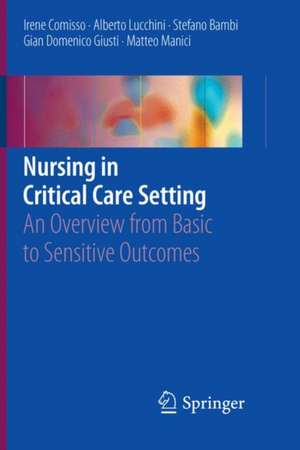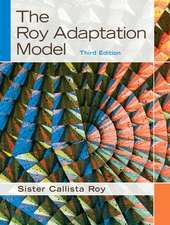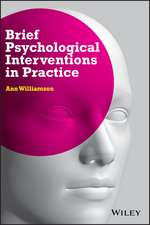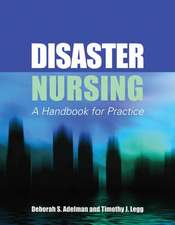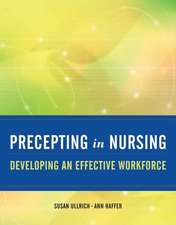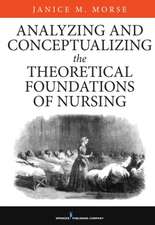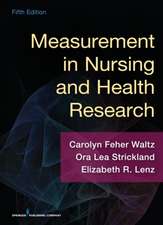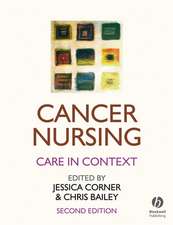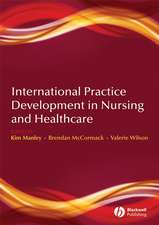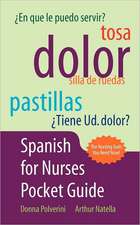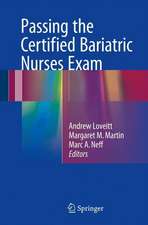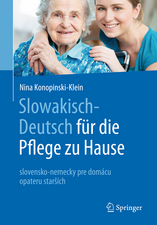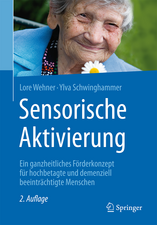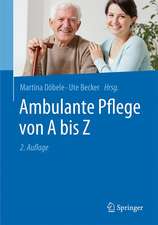Nursing in Critical Care Setting: An Overview from Basic to Sensitive Outcomes
Autor Irene Comisso, Alberto Lucchini, Stefano Bambi, Gian Domenico Giusti, Matteo Manicien Limba Engleză Paperback – 11 feb 2019
This book provides essential insights into how the approach to nursing care in ICU patients has markedly changed over recent years. It shows how the focus has progressively moved away from the technical approach that characterized early ICUs to a wider personalization of patient care that also highlights general problems such as basic hygiene and general comfort. It also demonstrates that, at the same time, the nurses' role has become more professionalized, with increasing competences in assessing and managing patients' problems and measuring related outcomes. It is structured in four units: Unit 1 presents the essential elements of accurate vital-function and basic-needs assessments for ICU patients, using both instrumental monitoring and specially validated assessment tools. Unit 2 addresses basic care in ICU patients, particularly hygiene and mobilization, reflecting recent developments in nursing that focus on the importance of these activities. Unit 3 highlights the main nursing outcomes in ICU patients, particularly focusing on risk prevention and complication management. Lastly, Unit 4 discusses advances in ICU nursing, from clinical, organizational and research perspectives.
| Toate formatele și edițiile | Preț | Express |
|---|---|---|
| Paperback (1) | 316.86 lei 38-44 zile | |
| Springer International Publishing – 11 feb 2019 | 316.86 lei 38-44 zile | |
| Hardback (1) | 340.87 lei 38-44 zile | |
| Springer International Publishing – 19 iul 2018 | 340.87 lei 38-44 zile |
Preț: 316.86 lei
Preț vechi: 333.53 lei
-5% Nou
Puncte Express: 475
Preț estimativ în valută:
60.65€ • 65.90$ • 50.98£
60.65€ • 65.90$ • 50.98£
Carte tipărită la comandă
Livrare economică 17-23 aprilie
Preluare comenzi: 021 569.72.76
Specificații
ISBN-13: 9783030095956
ISBN-10: 3030095959
Pagini: 524
Ilustrații: XXI, 524 p. 45 illus., 27 illus. in color.
Dimensiuni: 127 x 190 mm
Ediția:Softcover reprint of the original 1st ed. 2018
Editura: Springer International Publishing
Colecția Springer
Locul publicării:Cham, Switzerland
ISBN-10: 3030095959
Pagini: 524
Ilustrații: XXI, 524 p. 45 illus., 27 illus. in color.
Dimensiuni: 127 x 190 mm
Ediția:Softcover reprint of the original 1st ed. 2018
Editura: Springer International Publishing
Colecția Springer
Locul publicării:Cham, Switzerland
Cuprins
PREFACE.- INTRODUCTION.- DEDICATIONS AND ACKNOWLEDGEMENTS.- UNIT 1. ASSESSMENT AND MONITORING IN ICU_Chapter 1. Monitoring patients: what’s new in intensive care setting?.- Chapter 2. Neurological, pain, sedation and confusion assessment.- Chapter 3. Respiratory and ventilatory assessment.- Chapter 4. Cardiovascular assessment and monitoring.- Chapter 5. Early mobility, skin and pressure ulcer risk assessment.- UNIT 2. BASIC CARE IN ICU_Chapter 6. The Interventional Patient Hygiene Model.- Chapter 7. Bed bath, eye, mouth and skin care.- Chapter 9. Patients’ positioning.- Chapter 10. General considerations about infection prevention.- UNIT 3. CARE QUALITY MEASUREMENT: FROM PERFORMANCE INDICATORS TO NURSING SENSITIVE OUTCOMES_Chapter 11. Ventilator Associated Pneumonia and Hospital Acquired Pneumonia prevention.- Chapter 12. Hospital-Acquired Catheter Related Blood Stream Infection prevention.- Chapter 13. Hospital-Acquired Urinary Tract Infection prevention.- Chapter 14. Deep vein Thrombosis and pulmonary embolism prevention.- Chapter 15. Hospital-acquired injuries: device-related pressure ulcers, falls and restraints.- Chapter 16. Gastrointestinal function: enteral nutrition and bowel management.- Chapter 17. Visiting policies in Intensive Care Unit.- UNIT 4. FUTURE PERSPECTIVES IN INTENSIVE CARE NURSING_Chapter 18. A systemic approach: ABCDE bundle.- Chapter 19. Nurse staffing levels: skill mix and nursing care hours per patient-day.- Chapter 20. Evolutions in ICU nursing
Recenzii
“The purpose is to provide information for any nurses caring for patients in the ICU setting. … This book is informative and timely. I loved the various monitoring methods and assessment strategies. The diagrams and pictures are very well done. The authors discuss a variety of areas, not just the cardiac and respiratory system, but also the eye … positioning. This is a very well rounded and informative book that would be a great asset for any new ICU nurse.” (Cynthia Cummings, Doody's Book Reviews, October, 2018)
Notă biografică
Irene Comisso (RN, MSN) was graduated in 2000, and achieved the Master in Nursing Sciences degree in 2011. She works as ICU nurse since 2000, and lectures ICU nursing at Nursing Bachelor in Udine, Italy. She is member of the scientific board of STAT (selected topics in anaestesia and intensive care) annual congress. She is author of several publications and participated in critical care nursing conferences as speaker and chairman.
Alberto Lucchini works as a nurse in the general ICU at the Department of perioperative medicine and intensive care of San Gerardo Monza hospital since 1992. He is a chief nurse since 2003. Since 2006 he is the coordinator of master in Nursing Sciences of anesthesia and intensive care at the University of Milan Bicocca. He has been a member of the scientific board in several events and conferences on the topic of critical care nursing. He is member of the direction board of Aniarti (Italian critical care nurses association). He has several publications and collaborations to observational and multicentric studies.
Stefano Bambi (RN, MSN) is a PhD candidate in nursing science at the University of Firenze, Italy. He was graduated in 1995, and has been working as staff nurse in emergency department for about 10 years. Since 2008, he is working as staff nurse in intensive care unit. He was formerly lecturer in Emergency and Critical Care Nursing at Nursing Bachelor and other universitary courses in Florence. He was (invited) speaker in several conferences. He is an author of several nursing papers published in national and international journals.
Gian Domenico Giusti (RN, MSN) is staff nurse in Intensive Care Unit at Perugia Hospital. He is Lecturer in Critical Care at School of Nursing, Perugia University of Medicine, Italy. He is member of National Board of Aniarti (Italian Critical Care Nurses Associations) and member of Editorial Board of “Scenario. Il nursing nella sopravvivenza” (Off
icial Journal of Aniarti). He is the author of many scientific publications and invited speaker in several conferences.Textul de pe ultima copertă
This book provides essential insights into how the approach to nursing care in ICU patients has markedly changed over recent years. It shows how the focus has progressively moved away from the technical approach that characterized early ICUs to a wider personalization of patient care that also highlights general problems such as basic hygiene and general comfort. It also demonstrates that, at the same time, the nurses' role has become more professionalized, with increasing competences in assessing and managing patients' problems and measuring related outcomes. It is structured in four units: Unit 1 presents the essential elements of accurate vital-function and basic-needs assessments for ICU patients, using both instrumental monitoring and specially validated assessment tools. Unit 2 addresses basic care in ICU patients, particularly hygiene and mobilization, reflecting recent developments in nursing that focus on the importance of these activities. Unit 3 highlights the main nursing outcomes in ICU patients, particularly focusing on risk prevention and complication management. Lastly, Unit 4 discusses advances in ICU nursing, from clinical, organizational and research perspectives.
Caracteristici
Enhances nurses’ understanding of the indications for different practices Offers a much-needed conceptual framework Outlines each of the sensitive outcomes and indicators
Descriere
Descriere de la o altă ediție sau format:
This book provides essential insights into how the approach to nursing care in ICU patients has markedly changed over recent years. It shows how the focus has progressively moved away from the technical approach that characterized early ICUs to a wider personalization of patient care that also highlights general problems such as basic hygiene and general comfort. It also demonstrates that, at the same time, the nurses' role has become more professionalized, with increasing competences in assessing and managing patients' problems and measuring related outcomes. It is structured in four units: Unit 1 presents the essential elements of accurate vital-function and basic-needs assessments for ICU patients, using both instrumental monitoring and specially validated assessment tools. Unit 2 addresses basic care in ICU patients, particularly hygiene and mobilization, reflecting recent developments in nursing that focus on the importance of these activities. Unit 3 highlights the main nursing outcomes in ICU patients, particularly focusing on risk prevention and complication management. Lastly, Unit 4 discusses advances in ICU nursing, from clinical, organizational and research perspectives.
